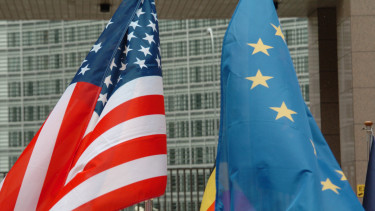EU funds
Hungary prepares for no-deal Brexit
The state of member states
The summary is important and timely because several of the UK's Prime Minister candidates are openly campaigning with their readiness to lead the United Kingdom out of the European Union on October 31, 2019 should all else fail. British Parliament yesterday rejected a proposal to further discuss a bill designed to prevent a no-deal Brexit.In its Wednesday communication, the Commission has concluded that there is no need to amend any measures taken since 2017 on substance and that they remain fit for purpose. The Commission does not plan any new measures ahead of the new withdrawal date.
The Commission has also completed a tour of the capitals of the 27 EU Member States and
the visits showed a high degree of preparation by Member States for all scenarios.
The EC's statement on Hungary's preparedness can be found here , while further information on Hungary regarding Brexit may be found here .What does a no-deal exit mean?
In a ‘no-deal' scenario, the UK will become a third country without any transitional arrangements. All EU primary and secondary law will cease to apply to the UK from that moment onwards. There will be no transition period, as provided for in the Withdrawal Agreement. This will obviously cause significant disruption for citizens and businesses and would have a serious negative economic impact, which would be proportionally much greater in the United Kingdom than in the EU27 Member States.As outlined by President Juncker in the European Parliament on 3 April 2019, should a ‘no-deal' scenario occur, the UK would be expected to address three main separation issues as a precondition before the EU would consider embarking on discussions about the future relationship. These are: (1) protecting and upholding the rights of citizens who have used their right to free movement before Brexit, (2) honouring the financial obligations the UK has made as a Member State and (3) preserving the letter and spirit of the Good Friday Agreement and peace on the island of Ireland, as well as the integrity of the internal market.
Cover photo by Dinendra Haria/SOPA Images/LightRocket via Getty Images

This article is part of the work programme titled "The impacts of EU cohesion policy in Hungary - Present and Future" which is carried out by Net Média Zrt., the publisher of Portfolio.hu, between 1st April 2019 and 31st March 2020 with European Union financing. The views in this article solely reflect the opinions of the author. The European Commission as the funding entity does not take any responsibility for the use of information presented in this article.












